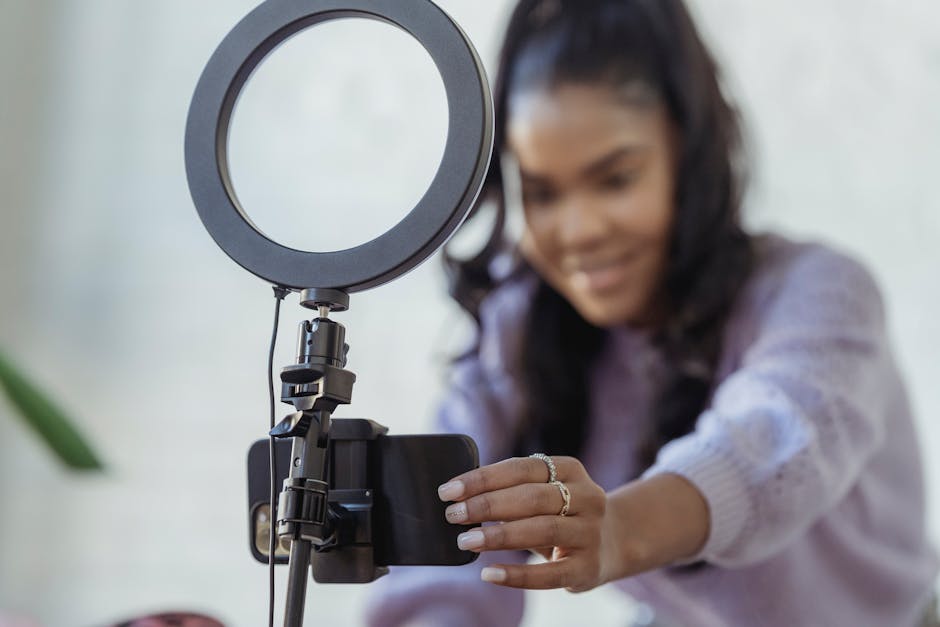Leveraging Influencer Marketing for Off-Page SEO Success
Influencer marketing has grown into a powerful tool for brands looking to expand their reach and improve off-page SEO. By partnering with influencers who have significant online followings, businesses can create authentic connections with new audiences. This strategy not only drives traffic to the website but also enhances the site's authority through high-quality backlinks, which are essential for SEO success.
Understanding Influencer Marketing
Influencer marketing involves collaborating with individuals who have a strong online presence and influence over specific demographics. These influencers can range from celebrities and industry experts to niche bloggers and social media personalities. The key is their ability to affect the purchasing decisions of their followers through endorsements and content creation.
When an influencer shares content about a brand, it can lead to increased brand awareness and trust among their followers. According to a report by Business Insider, businesses are set to spend up to $15 billion on influencer marketing by 2022. This growth underscores the effectiveness of this approach in reaching targeted audiences.
Influencers can be categorized based on the size of their following:
- Macro-influencers: Have between 100,000 to 1 million followers.
- Micro-influencers: Have between 10,000 to 100,000 followers.
- Nano-influencers: Have less than 10,000 followers.
The Connection Between Influencer Marketing and Off-Page SEO
Off-page SEO refers to actions taken outside of your own website that impact your rankings within search engine results pages (SERPs). Influencer marketing plays a crucial role in off-page SEO by generating high-quality backlinks from authoritative sites. These backlinks signal to search engines that your site is trustworthy and relevant, thereby improving your search rankings.
A study by Moz found that backlinks are one of the most critical factors in Google's ranking algorithm. When influencers link back to your website or feature your content on their platforms, it can significantly boost your site's authority. This is particularly effective when influencers operate within the same niche or industry as your business.
Moreover, influencer collaborations often result in user-generated content, which can further enhance your online presence. For instance, when followers share or engage with influencer content about your brand, it creates additional touchpoints and organic links back to your site.

Best Practices for Leveraging Influencer Marketing
To effectively utilize influencer marketing for off-page SEO, consider the following best practices:
- Identify the Right Influencers: Choose influencers whose audience aligns with your target market. Tools like BuzzSumo and Followerwonk can help identify suitable influencers based on their reach and engagement metrics.
- Create Authentic Partnerships: Build genuine relationships with influencers rather than transactional engagements. This fosters trust and leads to more authentic endorsements.
- Focus on Quality Content: Collaborate with influencers to produce high-quality content that resonates with their audience. This could include blog posts, videos, social media posts, or product reviews.
- Track Performance: Monitor the performance of influencer campaigns using analytics tools like Google Analytics or social media insights. Track metrics such as referral traffic, engagement rates, and backlink quality.
- Encourage Long-Term Collaborations: Establish long-term partnerships with key influencers for sustained impact on off-page SEO.
The Role of Social Media Platforms
Social media platforms are integral to influencer marketing strategies due to their vast user bases and diverse functionalities. Platforms like Instagram, YouTube, TikTok, Twitter, and LinkedIn each offer unique opportunities for influencer collaborations:
| Platform | Features | Best Use Case |
|---|---|---|
| Visual content, Stories, Reels | Lifestyle brands, fashion, beauty products | |
| YouTube | Long-form videos, Tutorials | Tech reviews, educational content |
| TikTok | Short-form videos, Viral challenges | Younger demographics, entertainment content |
| Real-time updates, Threads | News outlets, tech industries | |
| B2B networking, Professional content | B2B services, career advice |
Selecting the right platform depends on your target audience and campaign objectives. Each platform's unique features can amplify your message in different ways. For example, Instagram's visual-centric approach is perfect for lifestyle brands aiming to showcase their products through eye-catching imagery.
The Impact of Influencer Marketing on Brand Trust and Credibility
An essential benefit of influencer marketing is its ability to build brand trust and credibility. Consumers tend to trust recommendations from people they follow over traditional advertisements. A survey by Nielsen found that 92% of consumers trust recommendations from individuals over brands themselves.
This trust translates into higher engagement rates and improved customer loyalty. When an influencer advocates for a brand authentically, their followers are more likely to develop a positive perception of the brand. This enhanced credibility not only boosts sales but also encourages organic sharing and discussions about the brand online.
The collaboration with influencers also humanizes brands by associating them with real personalities who share similar values or interests with their followers. This personal connection fosters a sense of community around the brand and enhances its overall image in the market.
The strategic use of influencer marketing significantly enhances off-page SEO through high-quality backlinks from authoritative sources while fostering genuine relationships between brands and consumers. By understanding how to identify the right influencers, create authentic partnerships, produce quality content, track performance metrics effectively—brands can leverage this powerful tool for substantial SEO benefits. Social media platforms further amplify these efforts by providing varied avenues for reaching target audiences. Leveraging influencer marketing not only improves search engine rankings but also builds long-term trust and credibility among consumers making it an indispensable component of modern digital marketing strategies.